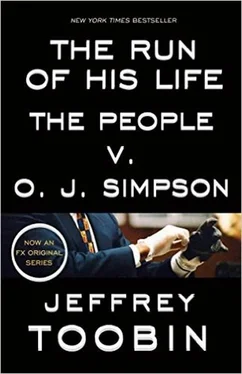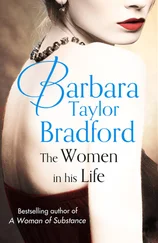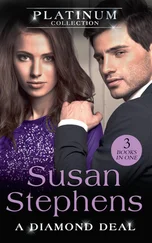Ito was probably being coy, for by this point in the trial he knew how much race had trumped gender. The defense wanted to keep a black juror even if she had been abused by her husband. Through all the jury controversies, the one constant was the prosecution wanting to shed black jurors, the defense seeking to evict whites. In any event, on April 5, Ito dismissed Harris for her lack of candor about the domestic violence in her past-and she, in turn, promptly created an uproar in the case.

Pat Harvey, an anchorwoman at KCAL, a local television station in Los Angeles, had a dentist who had been teasing her with some tantalizing information during the first several months of the trial. He said he had a patient who was a juror in the Simpson case, but he wouldn’t tell Harvey her name. When Harris was dismissed, the dentist confided that she was the patient, and he arranged for the ex-juror to sit for an interview with Harvey. In the conversation, conducted on April 5 just hours after Harris was dismissed, Jeanette Harris sat with Harvey in the co-anchor’s chair and shared her impressions of the trial so far.
Jeanette Harris was, it turned out, the prosecution’s worst nightmare. “From day one, I didn’t see it as being a fair trial,” Harris told Harvey. Prosecutors, she asserted, were “saying a whole lot of nothing.” She accused Denise Brown of “acting” on the witness stand (just as Johnnie Cochran had predicted the black jurors would react). Harris said she believed that Mark Fuhrman was “capable of probably anything,” including planting evidence. As for the defendant himself, Harris said that she was “quite impressed” with Simpson and his ability to handle his grief: “It amazes me; it totally amazes me that he handles things as well as he does.”
Even worse than her pro-defense interpretation of the evidence was Harris’s suggestion that the racial tensions surrounding the case might influence jurors’ votes. “There is maybe a person that, say one of the Caucasians, will say, ‘I can’t vote him not guilty because when I walk out of here, I want to walk back into a life,’ ” Harris told Harvey. “Or an African-American might say, ‘I can’t say he’s guilty because I want to walk out of here.’ You know, those things cross your mind.” In other words, jurors might vote to please their racial group. In addition, there was no doubt in Harris’s mind that the sheriff’s department was promoting racial divisions on the jury. “There are racial problems, and the deputies, some of them, not to bad-mouth the sheriff’s department, but some of them are promoting it.” Worst of all, as Harris told a reporter for KCAL off camera, jurors were discussing the facts of the case among themselves-in clear violation of Judge Ito’s orders to them.
Harris’s conduct was reprehensible. She had lied about her past to get on the jury. Once seated, she viewed the evidence with a completely biased eye in favor of the defense. (How, after all, could this have been an unfair trial “from day one”?) She admitted to being influenced by outside political pressures, and then she either lied about jurors’ discussing the case or failed to bring this misconduct to Ito’s attention when the violation of his orders was occurring. In retrospect, it is hard to imagine how Harris could have done more to betray her oath as a juror.
Yet Cochran knew just how to spin Harris’s removal from the jury and her subsequent statements. The day after Harris’s interview with Harvey, Cochran held an indignant news conference on the ground floor of the courthouse. But Cochran did not direct his indignation at Harris’s misconduct. Rather, he asserted that the prosecution had undertaken “a concerted effort” to pick off jurors favorable to the defense. In a sound bite that was played repeatedly over the next few days, Cochran said, “We think that Big Brother is doing more than watching us… We’re very concerned about this obsession to win.” Cochran had once again posed the Simpson case as a contest between the black community and the white establishment. “If Mr. Simpson can’t get a fair trial,” Cochran told the reporters gravely, “then all of us would be in trouble.”
Faced with specific, unsolicited information about a juror, the sheriffs had investigated in an unobstrusive way-by examining a court file. This inquiry had produced information establishing beyond doubt that Harris had lied on a critical issue in jury selection. She was, accordingly, dismissed as a juror. This, to Cochran, was evidence of a racist conspiracy against O.J. Simpson. That Cochran would make this absurd claim in an environment in which, according to Harris, information from the press was leaking through to jurors shows just how calculated a gesture it was. From the Todd Bridges trial to the Michael Jackson investigation-from the O.J. Simpson case to the civil suit filed by the white trucker Reginald Denny-Cochran found a handy white vendetta to denounce in every case. Dreading, as always, the ordeal endured by Time magazine when it ran its darkened photo of Simpson on the cover-that is, being called racist-the mainstream press mostly reported Cochran’s denunciations without comment.

Jeanette Harris also dumped a major dilemma in Ito’s lap. By asserting that jurors were discussing the case, Harris raised the troubling prospect of additional misconduct by the jury and the removal of more jurors. With only six alternates remaining (and likely months of testimony to go), this was a disheartening possibility for the judge, to say the least. But Ito felt he had to follow up, so after bringing Harris back in to flesh out her allegations, he decided to interview the remaining jurors in his chambers, one by one. For the lawyers, this was an extraordinary (and rare) opportunity to get a glimpse of the jurors and their state of mind in the middle of a trial.
Merely conducting these inquiries unsettled the prosecution, because the judge’s questions might raise the racial issue to jurors who may not have been affected by it. But as the jurors trooped through Ito’s chambers during the third week in April, it was clear that they had done plenty of thinking about race without Ito’s help.
The white jurors reacted to the racial issues with some hesitancy. Asked about racial tensions, Anise Aschenbach, a sixty-year-old white woman, said, “Well, I don’t know. Nothing has been said that I could pinpoint where that really is a problem, so I don’t know.” And several black jurors detected no animosity from anyone. (Cochran never let up on his charm offensive, though, especially in the intimate setting of Ito’s small office. One black juror took the opportunity in chambers to ask if the judge could get the jurors a copy of the movie Bad Boys , a thriller starring a pair of handsome young black actors. “Good movie,” Cochran volunteered.)
The real news of these sessions was that several African-American jurors were furious, especially the men. That the black men were suffering was hardly surprising. Though it was not well known outside of Southern California, the Los Angeles sheriffs had a reputation for racism that matched that of the LAPD. Worse, the training for all deputy sheriffs involved a peculiar procedure that required new recruits, as their first assignment, to spend two years as guards at the L.A. county jail. According to a widespread belief in Los Angeles, the sheriffs then spent the rest of their careers treating civilians like inmates. Since African-American men were disproportionately represented among the residents of the county jail, it is probably understandable that the black men on the jury chafed at the deputies’ attitude at the hotel. Willie Cravin, one of the black jurors, told Ito simply that “some of the black jurors are treated like convicts.”
Читать дальше














